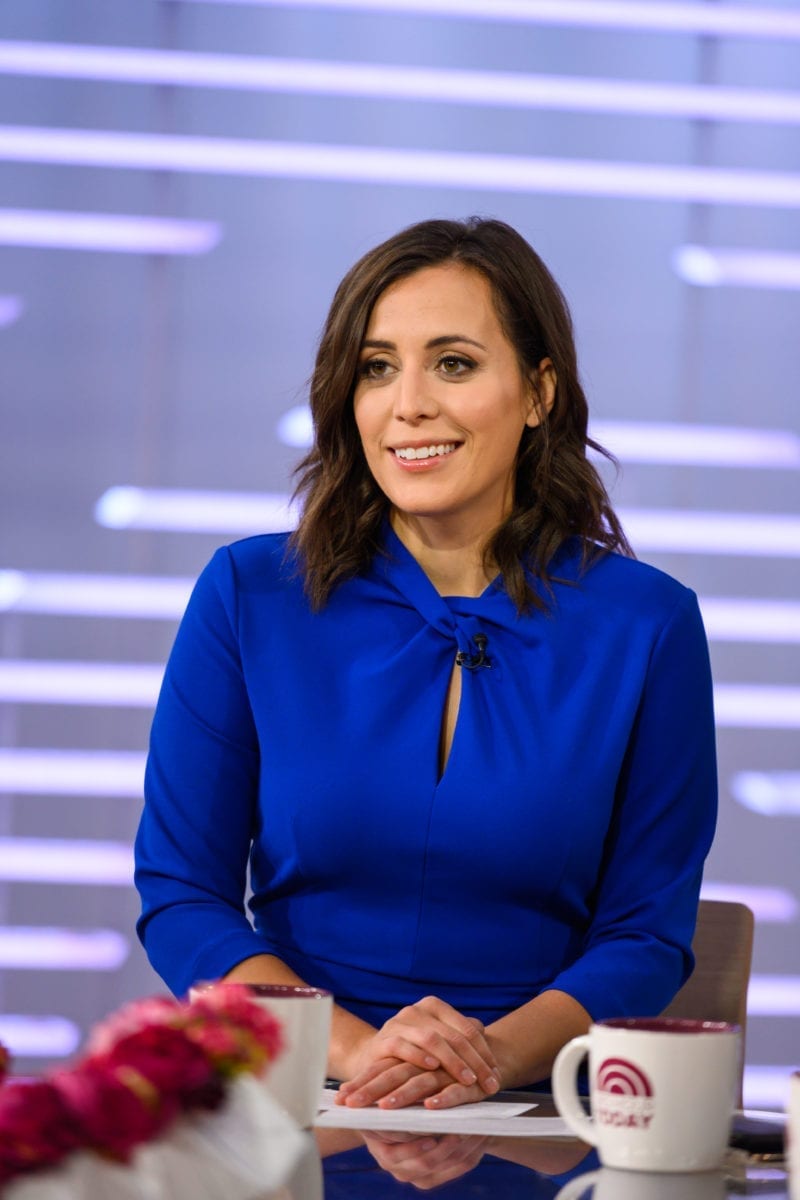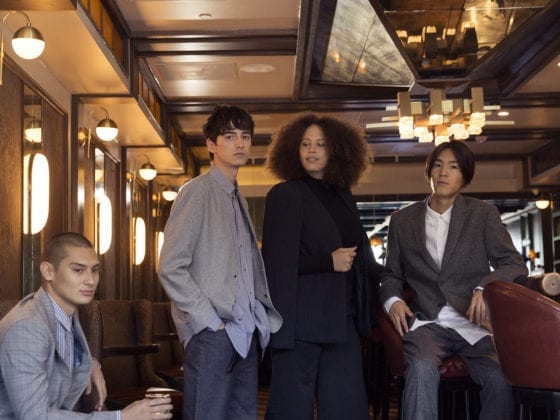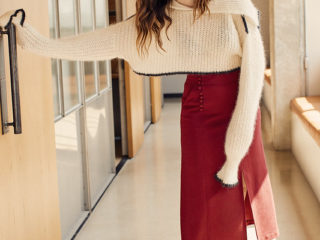“Real Women, Real Work” is a Darling series about everyday women who work in various fields including business, entertainment, science and education. We want to get to know the WHY behind their WHAT and get an inside look into different industries.
Hallie Jackson knows a thing or two about being busy. As a new mom and Chief White House Correspondent for NBC News, the only consistent thing about Hallie’s days are that they are all long. Whether she is juggling on-air interviews, editorial calls and team meetings or covering the latest news from the President’s contraction of COVID-19, the Town Hall with Joe Biden or knee-deep in a whirlwind of debate coverage, life and work in the capital have been hectic leading up to the election.
Throughout this time of global upheaval, Hallie has kept her main things the main thing—her newborn daughter, Monroe, and her passion to wield journalism as a tool to hold leaders accountable. Her daughter, born March 9, entered the world days before the NBA suspended its season, the president delivered a primetime pandemic address and police officers killed Breonna Taylor. Hallie jumped back into work, eager to drive the conversation amid the global reckoning over racial discrimination and public health disparities.
“The question has been, and is now, how we handle it. How we hold ourselves accountable and how we do the work, especially how we hold our leaders accountable—our lawmakers, our president,” Hallie said on her return broadcast to MSNBC.
Darling got to chat with the NBC News correspondent about her work in journalism, life as a new mom and the importance of the checks and balances role of journalism to hold leadership accountable.
When you were a kid, what did you want to be when you grew up?
When I was a really little kid, I wanted to be a pharmacist, mostly (only) because a family friend let my sister and me wear her pharmacist coat and we thought it was the coolest. In high school, I flirted with the idea of a career in law. In my freshman year in college, I thought I could stretch my creative muscles with a stint at an ad agency. By the time I hit junior year, though, I was singularly pursuing a journalism career.
Was there a moment when you knew you wanted to be a reporter? Or was it a gradual process of dipping your toes in the water?
I’ve always been a curious person. I’ve always loved to write, but it wasn’t until I got to college that I realized working in journalism played so well to both of those interests.
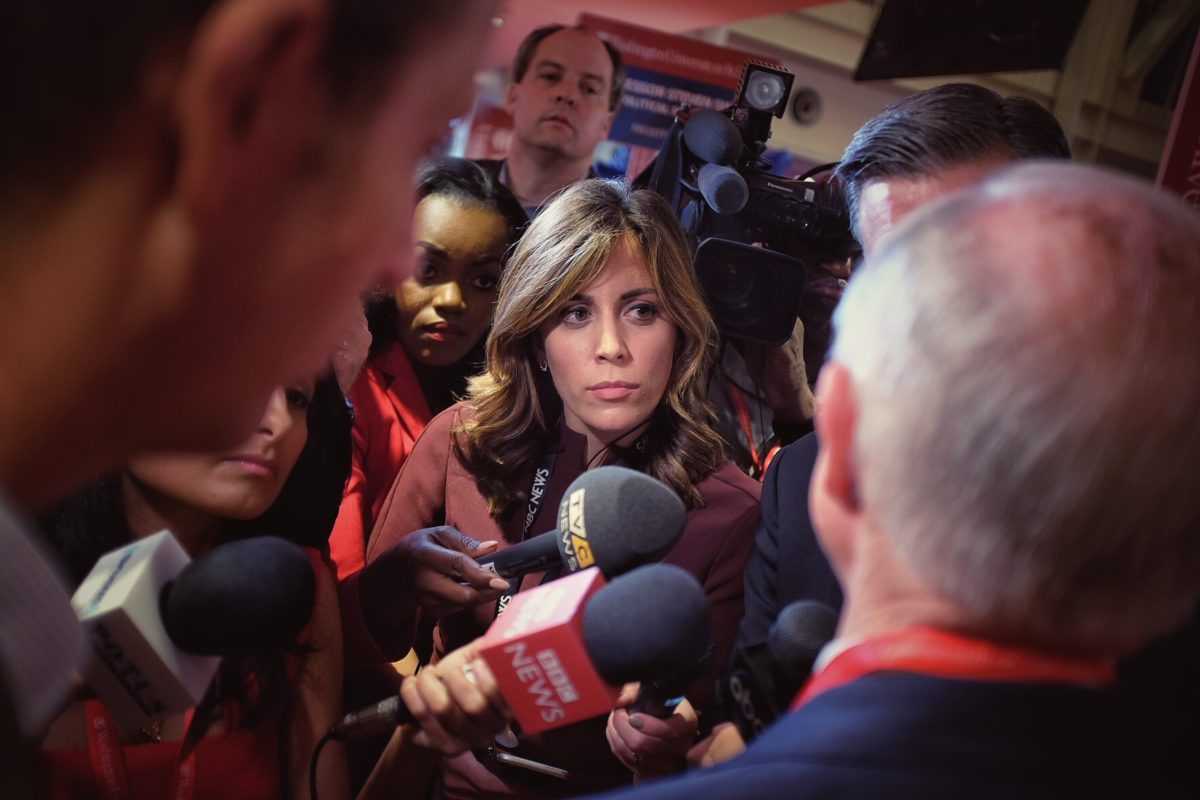
You worked your way up in broadcast journalism. Were there any mishaps early on in your career as a news anchor? What were some lessons you learned from them?
The mishaps abounded! One particularly vivid example came during a storm coverage when I worked for a local affiliate in Connecticut. We’d pulled up to a local bridge that had flooded out and planned to do our live shot to show the emergency responders, the high water—the whole scene.
We go on the air at 11 p.m., and I’m “walking and talking” from the cop cars to the river to what’s left of the bridge. I crouch down to lift up a piece of the pavement that had been ripped loose in the flood, but it’s unexpectedly really heavy. I lean my weight into it, still crouching, to try and tilt it up—and that’s when the entire thing collapsed. I topple backward, rolling onto my spine, stuck like a turtle rocking in its shell.
After an excruciating interlude, I manage to right myself and toss to our pre-taped story, hoping maybe no one noticed? Spoiler: They definitely did. Lesson learned? Never touch soaked asphalt.
Today, you are the Chief White House Correspondent for NBC News. What does a typical day on the job look like?
The only consistent thing about my day is the hours—they’re long. Even if I’m not turning a story for the “TODAY Show,” I’m up in the pre-dawn hours reading in and talking with my team as we put together the show I anchor on MSNBC at 10 a.m. The morning’s packed with editorial calls, source check-ins and scripting. It flies by.
After the broadcast, I take a deep breath and get ready for the second shift of my day. Usually, that means heading to the White House to report and prepare for Nightly News (although during the pandemic I’ve occasionally been able to do that work from home). I’m often incorporating appearances on NBC News Now and Shep Smith’s new CNBC show before heading home to grab dinner and get my head wrapped around the next day—whether that’s writing a story for the morning show or thinking about the following day’s rundown.
If there’s one thing that motivates and drives you as a news anchor, what would it be?
The opportunity to hold people in power to account. I have a literal front-row seat that lets me press the people in charge of leading this country, and it’s a responsibility I don’t take lightly.
I have a literal front-row seat that lets me press the people in charge of leading this country, and it’s a responsibility I don’t take lightly.
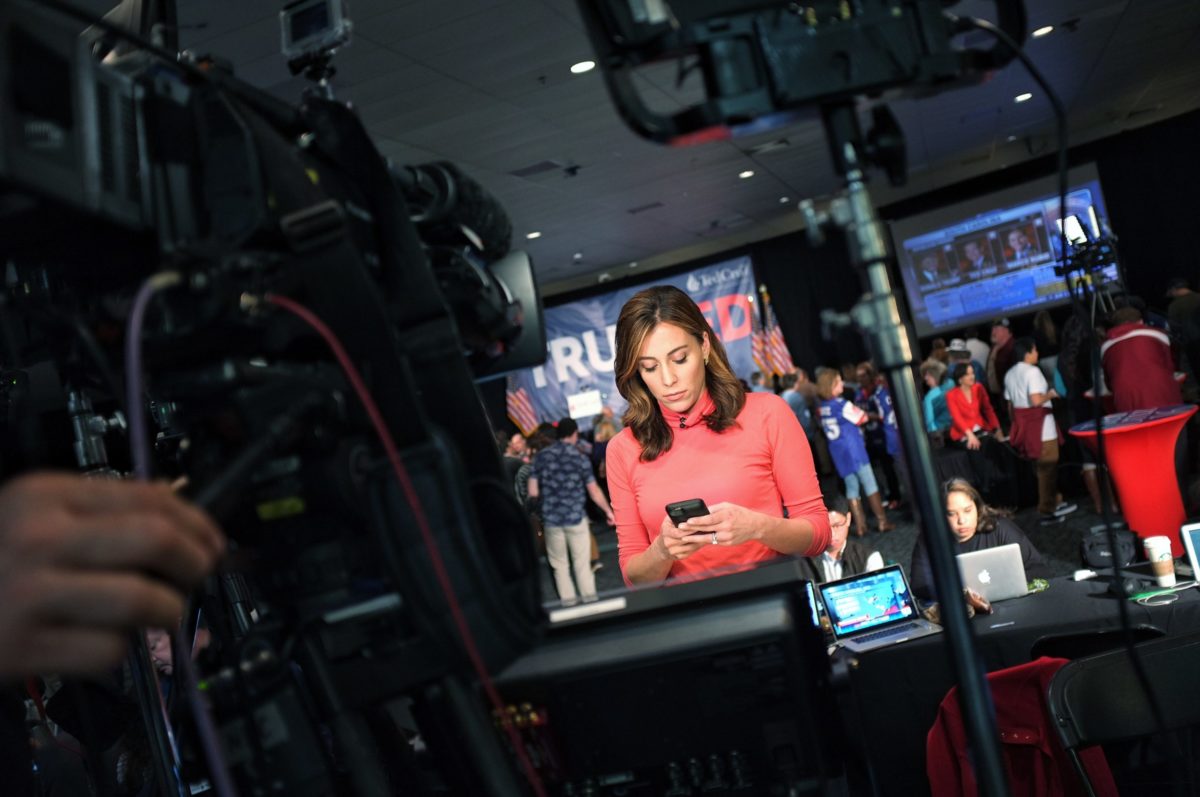
As elections are quickly approaching, how does this affect your work? What are the most exciting and challenging parts?
Any campaign cycle is intense, but this one—a presidential election with record early turnout in the midst of a pandemic feels especially so. The most exciting part is, to me, the same as the most challenging part—the relentless pace. We’re juggling multiple incredibly high-stakes stories at the same time and have a huge responsibility to do justice to each of them. I relish that.
Do you have a system of values that you live by in terms of your role as a journalist?
Follow the facts.
You recently had a daughter, Monroe, and introduced her on MSNBC. What has the process been like returning to work after a five-month maternity leave?
It was like stepping into a bonfire. I made it a priority to be fully present with Ro during my maternity leave and that meant disconnecting from a lot of the day-to-day news stuff. I didn’t check email. I stayed away from too much TV. I got off Twitter.
However, my first full day back on the job was the first day of the Republican National Convention. There was no “easing in.” I didn’t want it any other way, though. The full-immersion experience helped me get into the flow of our coverage fast.
I was surprised when an Instagram post of mine went viral recently. It’s a picture taken by an AP photographer as I pumped in a van with my White House press corps colleagues on my way back from Walter Reed Medical Center during the president’s hospitalization there. The photo struck a chord with a lot of folks, and I’m grateful that it did. I’ve learned so much from other women journalists who are also moms, and anything to help normalize that is a step in the right direction.
As a journalist, what would you say to someone who is apathetic toward staying informed and politically engaged?
There’s so much out there that’s deeply-reported, contextualized and enlightening, and there’s also a ton of junk. It’s more important now than ever to know the difference. That’s what gives news consumers true power in a democracy.
There’s so much out there that’s deeply-reported, contextualized and enlightening, and there’s also a ton of junk.
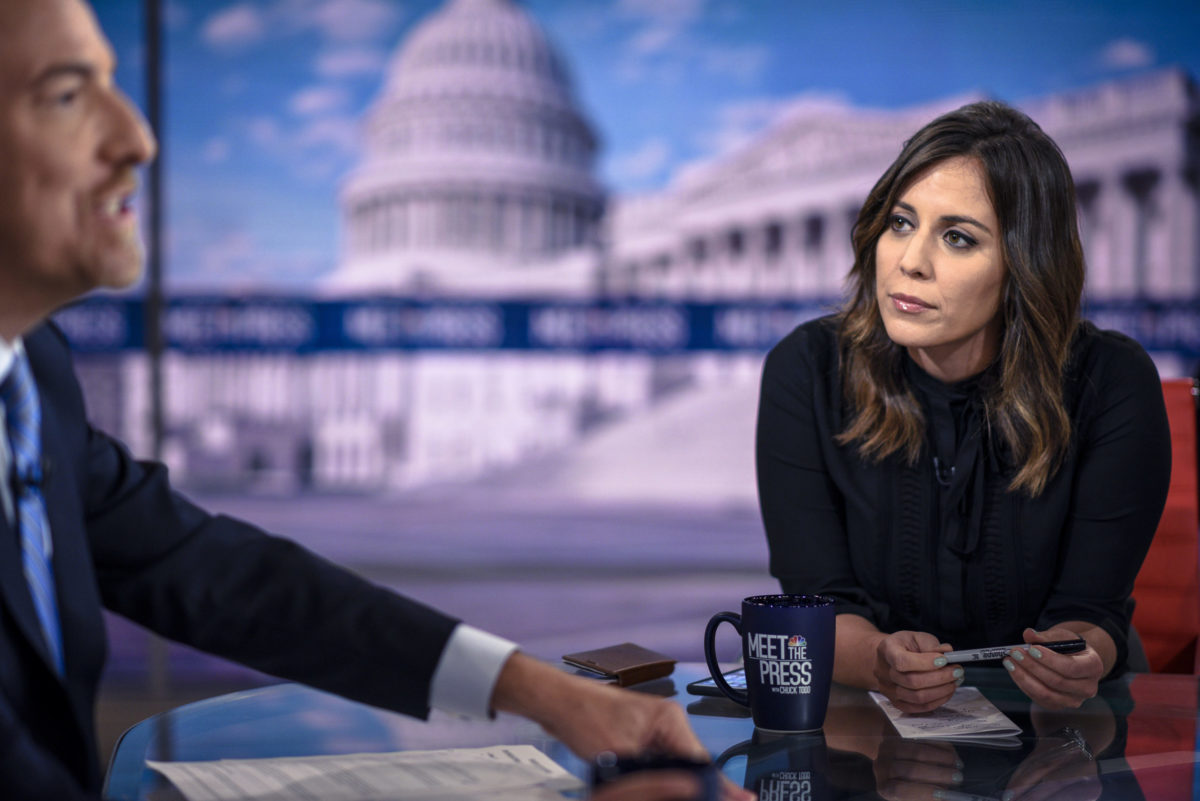
What advice would you give the young woman interested in pursuing a similar career path in journalism?
Start local. Learn to read school board agendas. Get the cell phone numbers of a dozen farmers in your area (or truckers, servers or whatever industry is driving the economy where you work). Report the hell out of your community. Own the beat. I’m a forever champion of local news because I know what it means to people, and I’m a huge advocate of planting early journalism seeds locally.
Knowing what you know now, what advice would you give to your younger self about life and career?
Trust your instincts. Keep saying yes, except when for sanity’s sake you absolutely must say no. Be your own best advocate. Meditate more. Don’t forget to call your mom.
To keep up to date with Hallie, follow her on Instagram. Find her on weekday mornings on @MSNBC! Also, catch Hallie on NBC News at 7 p.m. ET and MSNBC’s election night coverage at 4 p.m. ET!
Images via NBCUniversal Media, LLC

